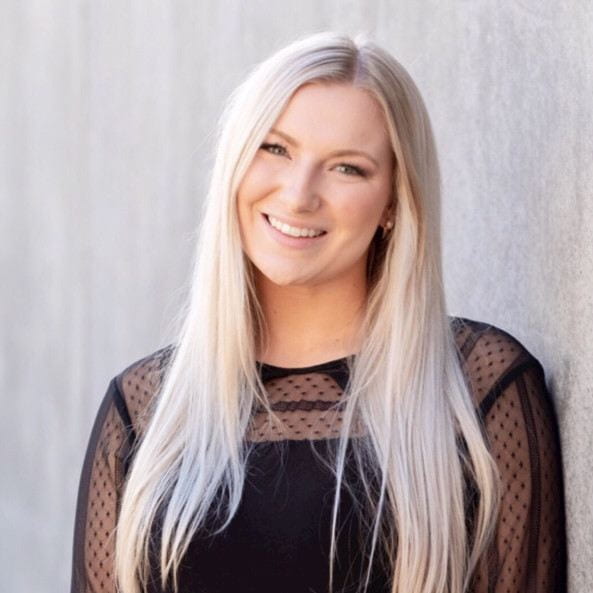Workplace Health and Safety
GME is committed to the health and safety of residents and fellows. We regularly monitor health, safety and security measures across our participating sites.
This page contains important details related to these efforts. To navigate easily, use the Table of Contents or ‘Control + F’ (or ‘Command + F’ on Mac) to quickly locate sections. If you have any questions or need to submit information, contact Olivia Frederiksen at ofred@uw.edu.
Concerns can be reported anonymously through the GME Report a Concern Tool.
Table of Contents
Injury & Incident Reporting
Health and Safety Data
- Health and Safety Data
- Relevant Reports
- Crime Logs
- UW OSHA Reports
- UWPD Annual Fire Safety & Security Report (CLERY)
Incident Reporting
Report Work-Related Injuries, Illnesses, & Near-Miss Incidents
Please report any work-related illnesses, injuries, or near-miss incidents to your program director, administrator, or supervising attending as soon as possible. If you are seriously injured, seek immediate medical treatment. Additionally, please complete a site accident report as an internal record of the incident within 24 hours of its occurrence. Reports should be submitted via the internal accident reporting method used by your site.*
Reporting Incidents at UW Medicine Locations
All incidents should be reported within 24 hours via the Safety Net system. Refer to the Safety Net User Resource page for training, resources, and site-specific Safety Net contacts.
- If you have been a victim of Workplace Violence:
Reporting Incidents Outside UW Medicine
Report incidents using the internal reporting system of the site where the incident occurred.
Common Non-UW Medicine Incident Reporting Systems
- Seattle Children’s Hospital (SCH): E-Feedback (via SCH intranet)
- Fred Hutch: Accident and Illness Report and ‘Near Miss’ Reporting form
- VA Puget Sound & VA Boise: ECOMP
*These internal reports are specific to each participating site and will not initiate a workers’ compensation claim. See workers’ compensation claims section for further details.
What happens to a Safety Net report?
See the life cycle of an incident report:
- Report submitted.
- The Workday supervisor is automatically notified (typically, this is the department chair)
- Report undergoes review. See How Safety Net reports are reviewed
- Report reviewer education sheets
- Event reviewer FAQ – includes review timeline expectations, adding others and assigning tasks for their consideration, and answers to other frequently asked questions.
- Report triaged based on several determining factors such as risk score and whether WPV was a factor
Further considerations:
- If patient-to-employee WPV has occurred, an electronic alert will be used at UW Medicine in the Electronic Health Record (EHR) to facilitate a response to alert the patient’s special needs or considerations in a patient’s care between healthcare workers regarding staff safety. Once the Safety Net Incident Report has been reviewed, the Care Plan is developed and should identify the plan for intervention, prevention strategies, care options, and is documented in the FYI tab of Epic. See UW Medicine Electronic Alerts policy.
UWMC-ML/NW & HMC Workplace Violence Prevention Plans: any physical assault or verbal threat of physical assault occurred
- uwm-ea-3063.pdf (uwmedicine.org)
- If patient-to-employee WPV has occurred, an electronic alert will be used at UW Medicine in the Electronic Health Record (EHR) to facilitate a response to alert the patient’s special needs or considerations in a patient’s care between healthcare workers regarding staff safety. Once the Safety Net Incident Report has been reviewed, the Care Plan is developed and should identify the plan for intervention, prevention strategies, care options, and is documented in the FYI tab of Epic. See UW Medicine Electronic Alerts policy.
SafetyNet Contacts
- UWMC ML & UWMC NW – uwmcsafetynet@uw.edu
- Harborview Medical Center (HMC) – hmcsafetynet@uw.edu
- Airlift Northwest – alnwsafetynet@uw.edu
- UW Medicine Primary Care Clinics – uwpc-cares4u@uw.edu
- All Other UW Medicine Locations – safenet@uw.edu
Resources
- How to enter an event report in the Safety Net System – Video
- How to enter an event report in the Safety Net System – PDF
- Frequently asked questions for Safety Net reporters
Bloodborne Pathogens Exposure Response and Reporting
Programs and trainees should be familiar with site-specific Exposure Control Plans. If you experience a needlestick, sharps injury, or are exposed to the blood or bodily fluids of another person during work, please follow these steps:
STEP 1 – Clean Thoroughly/Provide Care
Immediately follow the care instructions as listed on the Exposure Response Poster.
For non-UW Medicine incidents, please visit the employee health clinic associated with your clinical or practicum site or go to the nearest hospital emergency department. The healthcare provider will need injury information and source of exposure details (patient, sample, specimen, or material).
STEP 2 – Report Appropriately
UW Medicine incidents (does not include Health Science or SLU labs) should be reported to SafetyNet and to Employee Health via the RedCap Exposure survey.
Non-UW Medicine exposures (including UWSOM buildings, SCH, VA, etc.) should be reported via the incident reporting system of the site. This visit will not notify your program or the university. To inform the UW Employee Health team for appropriate follow-up and care, report the incident via the Online Accident Reporting System (OARS).
For guidance on exposures, please contact the UW Employee Health Nurse via (206) 221-7770 or ohnurse@uw.edu.
For guidance on reporting, please contact ofred@uw.edu.
Supporting Resources
- UW EH&S Bloodborne Pathogens webpage
- HMC Bloodborne Exposure and Needle Safety webpage
- UWMC-ML & UWMC-NW Infection Prevention webpage
- UW Medicine System-wide policy on Healthcare Practitioners Infected with Bloodborne Pathogens
- UW EH&S Work Safely with Sharps Focus Sheet
- UW EH&S Exposure Response Poster
- Contact UW Employee Health nurse (206) 221-7770 or ohnurse@uw.edu
Workplace Violence (WPV) Prevention and Reporting
Workplace violence is a verbal threat to cause harm to or physical assault to an employee of the healthcare setting. Any physical assault or verbal threat of physical assault against an employee of a health care setting on the property of the health care setting. Workplace violence or violent acts includes any physical assault or verbal threat of physical assault involving the use of weapons, including a firearm or a common object used as a weapon, regardless of whether the use of the weapon resulted in an injury (Revised Code of Washington (RCW 49.19))
Employees must notify their director, or supervisor, the Security Department or Human Resources to report any violent incidents and threatening behavior, including threats they have witnessed, received or have been told that another person has witnessed or received. A Safety Net report must be completed by the employee or their supervisor as soon as possible.
If patient-to-employee WPV has occurred
Per UW Medicine Electronic Alerts policy, an electronic alert will be used at UW Medicine in the Electronic Health Record (EHR) to facilitate a response to alert the patient’s special needs or considerations in a patient’s care between healthcare workers regarding staff safety. Once the Safety Net Incident Report has been reviewed, the Care Plan is developed and should identify the plan for intervention, prevention strategies, care options, and is documented in the FYI tab of Epic.
UW Medicine WPV Resources
WPV Prevention Education & Training
- CODE SILVER — Shots Fired video
- VIOLENCE PREVENTION — Flash Point video
- WPV Prevention, Intervention & De-escalation Training: Robert Lewis rslewis@uw.edu (206) 744 4914
Resources
- UW & UWM Reporting Workplace Violence
- UWM Manager toolkits for Workplace Violence
- UWMC Public Safety Newsletters
- Healthcare Workplace Violence Awareness Prevention and Response
- UWM Clinical Personal Safety Guide UWMC 2020 edit.pdf
- Workplace Violence Prevention Training Resources
- CODE SILVER — Shots Fired video
- VIOLENCE PREVENTION — Flash Point video
UWSOM Resources
SafeCampus
SafeCampus is the University of Washington’s violence-prevention and response Program. Anonymous reporting is available to discuss safety and well-being concerns for yourself or others.
- Call SafeCampus at 206-685-7233, Monday – Friday, 8:00am – 5:00pm.
- See what to expect when calling.
- If you are calling after-hours, please see after-hours resource guide
UW Police Department
UWPD has a singular focus on the needs of the campus community, including being responsive to expectations for the safety and security of students, faculty, and staff.
- Online Incident Reporting for lost property, telephone harassment, vandalism and theft.
- Active Shooter Resources
- Bike/Electronics Registration
- Husky NightWalk – 206.685.WALK (9255)
- NightRide – UW Transportation Services
- Rape Aggression Defense (RAD)
Some options may be limited to the greater U-district area. Please inquire with UWPD for additional information on resources and class offerings.
Need immediate assistance?
- Call 911
- Harborview Medical Center (HMC): 206-744-5555 (Public Safety Assistance)
- UW Medical Center (UWMC): 206-598-5555 (Security Guard Assistance)
- Call SafeCampus once you are safe.
- When appropriate alert your supervisor to the situation and hospital via SafetyNet.
Internal Resources
- Workplace Violence Prevention Training Resources
- UW Sexual Assault Resources
- HMC Workplace Violence Prevention Intranet
- UWM Manager toolkits for Workplace Violence
- UWM Personal Safety Guide 2020.pdf
- UWMC Public Safety Newsletters
- Healthcare Workplace Violence Awareness Prevention and Response
UW Police (collaborates with SPD when appropriate)
- Emergency: 911
- Non-Emergency: 685.UWPD (8973) TTY
- Anonymous Tips: 685.TIPS (8477)
External Resources
Injured? Reporting a Workers’ Compensation Claim
Important Clarification on Workers’ Compensation Coverage for Residents and Fellows: Residents and fellows are employees of the University of Washington School of Medicine (UWSOM), not UW Medicine. Therefore, they are covered under the UW Workers’ Compensation Program, per Administrative Policy Statement 14.1. It is vital to include this clarification when communicating with the UW Workers’ Compensation office and other internal entities to ensure accurate processing and support.
UWSOM faculty, staff and volunteers are covered for work-related injuries and illnesses, per Administrative Policy Statement 14.1. As UWSOM employees, those who are injured at work or believe that their illness is related to their job can file a claim through a physician’s office, online, or by phone.*
- Injuries at UWMC-Montlake:
 Injured Worker Instructions
Injured Worker Instructions - Injuries at UWMC-Northwest:
 Injured Worker Instructions
Injured Worker Instructions - Injuries elsewhere: see UW Workers’ Compensation Program webpage & FAQ. If you submit a report of a
- Supervisors: What Do I Do When My Employee Is Injured? A Resource for Supervisors
*If the incident involves in-patient hospitalization, amputation, recombinant/synthetic DNA exposure/spill, or a fatality call Employee Health and Safety (206.543.7262) as soon as possible as they are required to report any employee in-patient hospitalization or fatality to Washington State Department of Labor & Industries (L&I). Outside of EH&S business hours (8:00 a.m. to 5:00 p.m., Monday to Friday), call the UW Police Department (UWPD) at 206.685.UWPD (8973). UWPD will notify an EH&S on-call staff member.
Reporting a work-related injury in another state
For instructions on how to file a claim in another state, please contact Claim Services at workcomp@uw.edu. The claim filing process will be specific to the state in which the injury occurred.
If you sustained an injury while traveling for work
For UWSOM employees who are injured in another state while temporarily traveling out of state for work, WA workers’ compensation coverage applies. Contact workcomp@uw.edu to obtain guidance.
For UW employees injured in another country, see Global Travel Health and Safety section below.
For emergencies while traveling internationally, please call UW Global Travel Health and Safety at 001-206-632-0153. Answered 24 hours a day, 7 days a week by the UW Police Department. The operator will collect information about the emergency along with your contact information and forward the information to the Global Travel Health and Safety team, who will assist you.
UW Workers’ Compensation
If you’ve sustained an injury contact a UW Workers’ Compensation claims specialist by emailing workcomp@uw.edu. Ensure you clarify that you are a UWSOM employee.
Internal Resources
External Resources
Report A Concern
Residents, fellows, faculty, and supporting program members, should all be familiar with the GME’s confidential and anonymous Report A Concern tool. Reporting takes courage. Sharing your concern with us will not only help you resolve your issue, but it can also help create a better environment for your peers. It takes all of us to make sure our peers are treated with respect and experience a great learning environment. We’ll review your concern as soon as possible (typically within 48-72 business hours). If you provide your contact information, we will follow up with you to discuss next steps. Learn more about what may happen after you submit, who will see your report and other FAQs.
Report A Concern
Residents, fellows, faculty, and supporting program members, should all be familiar with the GME’s confidential and anonymous Report A Concern tool. Reporting takes courage. Sharing your concern with us will not only help you resolve your issue, but it can also help create a better environment for your peers. It takes all of us to make sure our peers are treated with respect and experience a great learning environment. We’ll review your concern as soon as possible (typically within 48-72 business hours). If you provide your contact information, we will follow up with you to discuss next steps. Learn more about what may happen after you submit, who will see your report and other FAQs.
UW Medicine’s Bias Reporting Tool
UW Medicine has created this tool to allow for formal reporting of incidents such as bullying, demonstrating negative biases, and expressing racist, xenophobic, homophobic, transphobic or other bigoted beliefs. Reporting can include a variety of concerns ranging from one-time micro-aggressions to more severe and sustained behavior. We are committed to responding to these events and continuing to improve our climate.
UW’s Title IX Reporting
Title IX and other federal and state laws collectively prohibit discrimination based on sex, sexual orientation, gender, gender expression, pregnancy or parenting status, and LGBTQ+ identity. Reporting sex- and gender-based violence, harassment, or discrimination is a critical step in preventing and addressing prohibited conduct.
To streamline the reporting process and ensure timely support and intervention, individuals should use the Title IX Reporting Form on the Title IX Reporting webpage to report any incidents involving sex- and gender-based violence, harassment, or discrimination. This includes conduct experienced directly or incidents individuals have become aware of, encompassing patient-provider interactions.
General Safety Guidance & Crime Prevention
Click to download UW Medicine Personal Safety Guide
- At night, stay in well-lit areas and use routes that are more heavily traveled.
- Carry a safety whistle. Whistles are available at no cost from UWPD. If you are in trouble, you blow your whistle to attract attention. If you hear a whistle being blown, immediately call 911 to report the location of the incident.
- Avoid walking alone through isolated areas, such as shortcuts through parking lots and deserted parks.
- Familiarize yourself with the Campus Safety shuttle service and use it when you feel uncomfortable walking alone.
- Familiarize yourself with the locations of the Code Blue Emergency telephones on campus and the yellow emergency call boxes located in the parking garages.
- Be aware of what is going on around you. If you suspect you are being followed, indicate your suspicion by looking behind you. If you are on foot, cross the street, change directions and head to a well-lit area or a place with people as soon as possible, such as a residence or academic building.
- Follow your gut instincts. If your intuition tells you that you are at risk, leave the situation quickly. If you see someone suspicious in a parking lot, building or anywhere on campus, leave the area and call the UW Police at 911 from any campus phone. 911 calls from pay phones are free.
- If you enter an elevator and the person riding with you is making you uncomfortable, leave. Get off before the door closes or leave at the next floor.
- Use the buddy system. When with a friend at a party, agree to watch out for each other and to leave the event together or in a group.
- Should you become a victim of a crime, call the police as soon as you safely can.
Suspicious person behaviors
Suspicious people are people you do not recognize that you see:
- Entering rooms, offices and labs with no apparent business there.
- Tampering with door locks, windows, bicycles and vehicles.
- Working on bicycles still locked up for a long period of time.
- Appearing to be scared, nervous or anxious.
- Peering inside windows.
- Waiting outside near building entrances during opening or closing hours.
- Carrying weapons, such as knives or guns.
- Hanging out in restrooms for a long period of time.
- Lingering in hallways for a long period of time.
- Refusing help.
- Sleeping on chairs, furniture or the floor. (Use discretion during exams.)
If you see a suspicious person in your building, ask if you can help them. If the person has legitimate business in the building, he or she will appreciate your offer of help. When you call the police regarding a suspicious person, be prepared to describe the person and his/her direction of travel.
UW Medical Center – Montlake (UWMC-ML)
Public Safety Office: call 206-598-4909
UW Police Department (UWPD)
- Non-Emergency: 206.685.UWPD (8973) TTY
- Anonymous Tips: 206.685.TIPS (8477)
Business, non-emergency department:
- 206.543.0507
- Hours: Monday-Friday, 8:30 am-12:00 pm | 1:00 pm-4:30 pm
- Email: uwpolice@uw.edu
- Records: policerecords@uw.edu
- Fax: 206.685.8042
UW Medical Center – Northwest (UWMC-NW)
- Call 206-668-5555. 24/7 security available.
Harborview Medical Center (HMC)
- HMC Workplace Violence Prevention Intranet
- HMC Security Services Portal
- Includes workplace violence and training videos, HMC Security Newsletters, key contacts, and department information.
- HMC Workplace Violence Prevention and Safety Plan – see strategies and procedures addressing security issues and factors that contribute to and also prevent the risk of violence.
Injuries and Illnesses
- Seek Care via HMC Employee Health Services (employee flu vaccination campaign, N95 mask fit testing, infectious prevention and control resources for employees)
- Off hours contact can be reached via the HMC Operator: 206-744-3000.
Reporting Workplace Violence
- Flow-Charts Based on Type of Assault:
- Were you assaulted by a:
UWM Clinics
Fred Hutchinson Cancer Center (FHCC) / Seattle Cancer Care Alliance (SCCA)
- 8 a.m. — 5 p.m. Weekdays: 206.667.4866 (EH&S)
- Main control room: Hutchinson Building, D-Level, CD-141
- Staffed 24 hours a day, 7 days a week – 206.667.1111
- Security administration: Yale Building, 1st Floor, J1-500
- Weekday hours of operations: 8 a.m. – 4:30 p.m.
- Emergency Information Hotline: 1.888.667.2020
- HCC campus security: https://centernet.fredhutch.org/cn/u/security.html
- p.m. — 8 a.m. Weekdays, + Weekends / Holidays for Emergencies: 206.667.1111 (Security)
- For fire, police or life-threatening emergencies, dial 9-1-1. STAY on the line until told to hang up. Dispatchers can provide life-saving instructions over the phone.
-
-
- Dial 206.667.1111 to notify Security who will expedite the arrival of emergency responders (police, fire) to the scene of the incident. If possible, have a co-worker meet the security officer and emergency responders when they arrive.
- Dial 206.667.4866 to notify the Occupational Health Nurse who will respond to provide care to any victims until emergency responders arrive.
-
-
- Main control room: Hutchinson Building, D-Level, CD-141
Seattle Children’s Hospital (SCH)
- Call 7-2030. 24/7 security & escort service available.
VA American Lake
- Phone: 253-582-8440, ext. 76757
VA Boise
- Police Service is located in building 67, Room 126.
- Boise VA Police are available 24/7/365
- Boise VA Police Telephone: 208-422-1000 ext. 1122
In addition: ALL VA computer keyboards in patient care and non-patient care areas are equipped with a PANIC system. When both keys are pressed it will alert the Police directly.
VA Puget Sound Health Care System (VAPS/VAPSHCS)
- Seattle Division, Building 100, x62899, 206-764-2899. 24/7 security & escort service available.
- American Lake Division, Building 6, x74019, 253-589-4019. 24/7 security & escort service available.
Police Dispatch Center Services:
- Vehicle Registration
- Escort service available
- Proximity Card/PIV Card door access
- Security monitoring (via camera; building patrol; alarm systems
Division of Campus Community Safety & Institutional Partners
The Division of Campus Community Safety, established in fall of 2022, coordinates safety priorities and implementation across the three UW campuses and UW Medicine locations through three key emergency and safety response units: UW Emergency Management, UW SafeCampus, and UW Police (in Seattle).
The Division provides strategic and operational support for its units, seeks opportunities to innovate with alternative response models, develops common standards across UW and advocates across UW for preparedness.
See how Campus Community Safety is reimagining workplace health and safety. You can contact Campus Community Safety by using this form.
UW Emergency Management & Disaster Planning
UW Emergency Management (UWEM) provides technical and consulting services for the Seattle campus and acts as a liaison to other university locations, including UW Medicine. UWEM provides individual and group training, workshops, seminars, drills and exercises and distributes general materials to help the campus community prepare for campus crises, disasters and major emergency incidents.
UW Emergency Management & Disaster Planning
UW Emergency Management (UWEM) provides technical and consulting services for the Seattle campus and acts as a liaison to other university locations, including UW Medicine. UWEM provides individual and group training, workshops, seminars, drills and exercises and distributes general materials to help the campus community prepare for campus crises, disasters and major emergency incidents.
SafeCampus
SafeCampus is the University of Washington’s violence-prevention and response Program. Anonymous reporting is available to discuss safety and well-being concerns for yourself or others.
- Call SafeCampus at 206-685-7233, Monday – Friday, 8:00am – 5:00pm.
- See what to expect when calling.
- If you are calling after-hours, please see after-hours resource guide
UW Police Department
UWPD has a singular focus on the needs of the campus community, including being responsive to expectations for the safety and security of students, faculty, and staff.
- Online Incident Reporting for lost property, telephone harassment, vandalism and theft.
- Active Shooter Resources
- Bike/Electronics Registration
- Husky NightWalk – 206.685.WALK (9255)
- NightRide – UW Transportation Services
- Rape Aggression Defense (RAD)
Some options may be limited to the greater U-district area. Please inquire with UWPD for additional information on resources and class offerings.
UW POLICE CONTACT INFO
EMERGENCY—911
Non-Emergency: 685.UWPD (8973) TTY
Anonymous Tips: 685.TIPS (8477)
Emergency & Disaster Planning Resources
UW & UWM Emergency Procedures & Policies
- UW Seattle Emergency Emergency Procedures Brochure
- Extreme Weather: Heat, Working in High Temperatures and Snow, Ice and Winter Weather
- Outdoor air Quality
- Earthquake
- Fire
- Power Outages
- Hazardous Materials
- Active threat/Shooter Preparedness Guide
- UW GME Substantial Disruptions in Patient Care and Education Policy
- UW Medicine Policy: Disclosure of Unanticipated Outcomes of Care and Safety Events
Don’t forget to sign up for UW Alert and emergency alerts in your area’
External Resources
Wellness and Support Resources
Wellness is crucial to both personal and professional success. Several programs are designed to support your mental, emotional, and physical well-being throughout your training.
GME Wellness Team
The GME office has a dedicated team of wellness professionals that help residents, fellows, and their significant others cope with common stressors of training. Free and confidential counseling for both individuals and couples is available virtually and at UWMC, HMC and SCH. No medical record or bill is generated. Learn more on the GME Wellness webpage or book an appointment.
Wellness/Wellbeing Resources
- Promoting a Culture of Well-Being
- General Wellness and Self-Care
- Mental Health
- Burnout
- Fatigue
- Substance Abuse
- Self-Screening Tools
- Mindfulness-Based Stress Reduction (MBSR) and Compassion Cultivation
- Meditation Rooms
- Lending Library
Wellness-specific questions can be directed to GME Wellness Director, Dipti Chrastka (diptic@uw.edu).
UW Medicine Peer-to-Peer Program
Engaging with individuals who work in similar settings or have experienced similar situations can be highly beneficial. The UW Medicine Peer-to-Peer Program provides support to staff, faculty, and trainees following adverse events. For more information, please visit the Peer-to-Peer webpage.
GME Disaster Planning Resources
Substantial Disruptions in Patient Care and Education Policy – Outlines institutional responsibilities to address the support of programs and trainees in the event of a disaster or other substantial disruption in patient care or education. Includes communications, trainee support, continuity of patient care, and ongoing management of administrative functions.
UW Medicine Policy: Disclosure of Unanticipated Outcomes of Care and Safety Events
Emergency Alerts
To receive critical updates and notifications, residents and fellows must opt-in to the following messaging services. Additionally, please remember to refresh your alert settings annually to ensure you continue receiving important information without interruption.
For non-Seattle trainees and those at non-UW participating sites, it is essential to ensure that all residents and fellows are included in the emergency alert notifications at their respective locations.
UW Alert
We recommend trainees and faculty subscribe to UW Alert to receive safety messages. UW Alert messages are also posted on Facebook and X and the UW Alert blog.
External Participating Sites
Programs and trainees should ensure that emergency alerts are arranged for trainees to receive at all participating sites. Often, you must request to opt-in.
UW Medicine STAT | Info Advisory Alerts
UW Medicine has developed STAT | INFO ADVISORY alerts to disseminate official information via text message to keep the UW Medicine workforce informed during emergencies and situations that might disrupt normal operations.
Alert Seattle, ALERT King County & Pierce County Alert
ALERT King County helps you stay informed about potential hazards and threats in King County, including near UW Bothell. Great if you live in King County, but outside Seattle. Register now.
Pierce County Alert – Choose up to five locations you want to be notified about such as your home, near UW Tacoma or work. Sign up online, call 253-798-6595 or text “PCALERT” to 888-777. Sign up online.
Resources to Stay Informed
- Seattle Office of Emergency Management
- Pacific Northwest Seismic Network – ShakeAlert
- Washington State Department of Emergency Management
- National Weather Service
- U.S. Federal Emergency Management Agency (FEMA)
- American Red Cross
Emergency broadcast radio station
KIRO-AM 710 in Seattle is the federally designated emergency radio station that will broadcast information for this area during and after emergencies and disasters.
International Travel Resources
Emergency Medical and Security Insurance
The University of Washington provides comprehensive international emergency medical and security insurance coverage at no additional cost for all members traveling abroad for UW-related activities. All international rotations are considered official UW business, including clinical, non-clinical, and UW-sponsored research rotations abroad. This initiative is facilitated through Cigna for insurance services and International SOS (ISOS) membership for emergency medical, mental health, and security and evacuation services. Travelers will have access to 1,000 International SOS clinics in 90 countries and additional local clinics that have previous agreements with International SOS.
Getting started:
- Insurance activation – Automatically provided for official international travel.
- Emergency assistance while traveling – Registering your travel will activate your ISOS account and gain access to the ISOS Assistance App for emergency support.
Useful resources:
- UW Global Travel Security One Pager – Essential for all travelers, available for download and distribution.
- UW Study Abroad Health and Safety Planning Guide – comprehensive guide with critical health, safety, and wellbeing tips for traveling abroad.
- Register your travel and be familiar with travel registration FAQs. Registration benefits include 24/7 emergency assistance while abroad, country-specific risk and travel advising, and health and safety updates specific to the itinerary location.
- About Cigna insurance coverage & how to file a claim
- UW international travel rules & restrictions.
- Emergency Steps for UW Travelers
- The UW Global Travel Health and Safety team supports the health & safety of UW employees and students who are traveling abroad for work, learning, or research. We suggest scheduling a pre-travel consultation or reaching out to them with any international health and safety questions.
UW Global Travel Health and Safety
Email: TravelEmergency@uw.edu
For emergencies call 001-206-632-0153. Answered 24 hours a day, 7 days a week by the UW Police Department. The operator will collect information about the emergency along with your contact information and forward the information to the Global Travel Health and Safety team, who will assist you.
If you’ve sustained an international injury, please ensure to also contact UW Workers’ Compensation. Ensure you clarify that you are a UWSOM employee, not a UW Medicine employee. See Workers’ Compensation section for more details.
Commuting Safely
Parking and Transportation Resources
The UW GME Parking and Transportation Resources webpage provides information on commuting methods to training sites, including parking, biking, shuttling, and bussing. It also addresses FAQ related to these topics and other general commute-related questions.
Bike/Electronic Theft Prevention and Resources
The highest crime on campus is theft – mostly of unattended or improperly secured items. A laptop left on a library table while you use the restroom. A purse left in your unlocked office while down the hall talking to a colleague. A backpack left on the seat of your car. Love Your Stuff? Keep it safe, secured and out of sight. Better yet, register your device with UWPD. You’ll need basic information about your device description, serial number, MAC address, etc.) to register with the University of Washington Police Department.
UWPD partners with the bicycling community, retailers, city agencies and other university departments to reduce bike theft through education, awareness, and enforcement. Bicycle theft is one of the most common crimes on campus, but through our efforts–and your help, we can make our community a model for bicycle security.
Also, consider these helpful tips:
- Park your bike in the most secure option available
- Use a robust lock; U-locks are typically the most secure. Most cable and chain locks are easily cut with cable cutters. More than 95% of the bikes stolen on campus are those that were locked with a cable lock alone.
- Lock the bike frame and wheels to the rack, not just the wheels.
- Do not leave accessories on your bike, i.e.. lights, computers, helmet, that can be easily removed.
- Register your bike with UWPD on Bike Index — it only takes a few minutes.
- If you experience a bike theft, contact the appropriate Police department for the site where the theft occurred and ask what resources are available (video footage, etc).
Safety Escort Services
Public safety escort services are available by request at the following sites:
- UWMC-ML
- UWMC-ML Public Safety Office via 206-598-5555
- Monday – Friday; 4:30 p.m. to 1:00 a.m.
- UWMC-ML Public Safety Office via 206-598-5555
- UWMC-ML, Roosevelt clinics, Seattle campus
- Contact UWPD Husky NightWalk via 206-685-9255 for a safe walk or ride within the service area.
- Daily; 6:30 p.m. — 2 a.m. EXCEPT University holidays
- Contact UWPD Husky NightWalk via 206-685-9255 for a safe walk or ride within the service area.
- HMC:
- call (206) 744 3193; HMC Security Services or Parking and Commuter Services will assist you.
- VA Puget Sound: call 206-764-2899
- VA American Lake Division: call 253-589-4019
- VA Boise: call 208-422-1000 ext. 1122: available 24/7
- Seattle Children’s Hospital – Anyone with a Seattle Children’s network account can access the Security Services section on CHILD with more details on requesting.
- Fred Hutch Cancer Center – call 206.667.1111
Virtual Safety Escort Services via SafeZone
The SafeZone app gives you direct access to the fastest possible safety assistance regardless of where you are. The app provides you with immediate access to the UW Police when you need assistance around UWMC-Montlake, the Roosevelt Clinic, and other upper campus locations. Outside of the UW’s Seattle campus, the app will connect you to SPD.
Emergency-Safe Ride Home Program
Residents and fellows unable to safely get home at the end of a shift are strongly encouraged to take advantage of GME’s Emergency-Safe Ride Home program to receive reimbursement for eligible rides. Please review eligibility and submission guidelines in the policy. Those in the U-PASS program, and Bike Locker or House permit holders at the Seattle Campus, also have access to the UW Seattle Campus Emergency Ride Home benefit in addition to the GME Emergency-Safe Ride Home program.
Health & Safety Data
Health and Safety Data
The GME Office collaborates with various University of Washington (UW) Environmental Health & Safety (EH&S) committees, UW Medicine (UWM) Employee Health teams, and the UWM and Harborview Medical Center (HMC) Workplace Violence Prevention Committees to collect and monitor health and safety data and trends among residents, fellows, faculty, and staff.
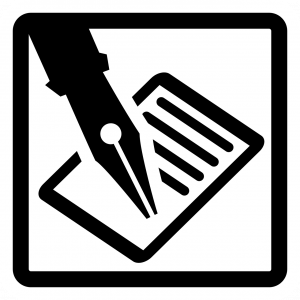
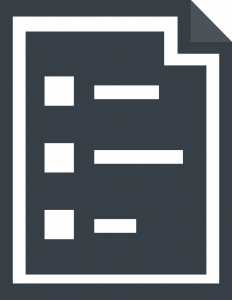
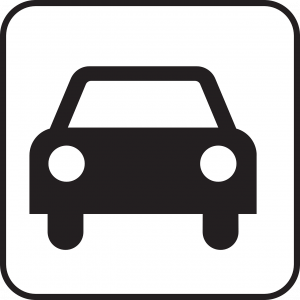

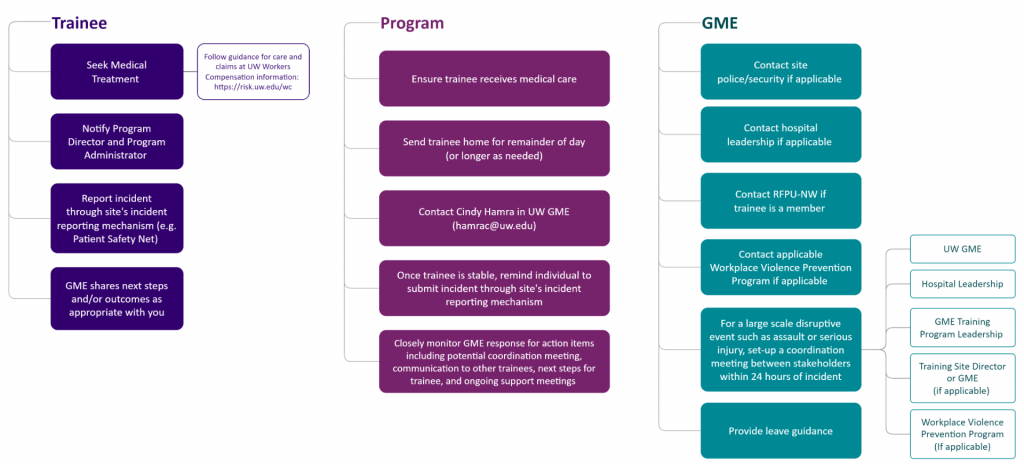
 Physical
Physical